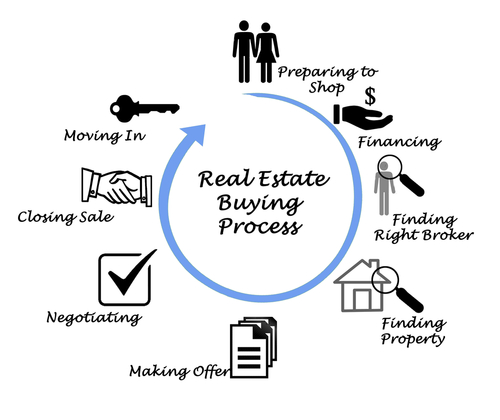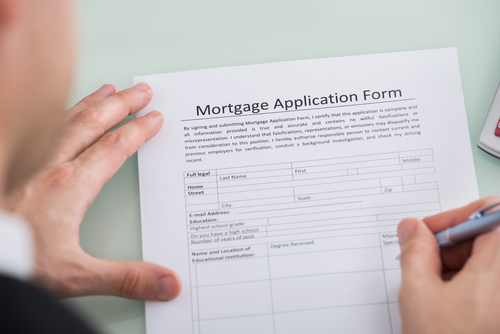
A mortgage will be your biggest and most important loan. Getting approved involves a lot of paperwork and you'll stay in close communication with your loan officer throughout the process. First-time homebuyers are often overwhelmed and don’t fully know what to expect. But with research and pre-education, you can become familiar with the steps involved in getting a home loan. The more you know, the easier it’ll be to navigate the next 30 to 45 days —which is the average time it takes to close on a mortgage. How do you educate yourself? Here are three steps you can take to gain a better understanding of the home loan process. 1. Educate yourself online When buying a new home, no one expects you to know everything about mortgage loans. You will have questions and concerns. The good news is that many professionals are willing to assist, including your loan officer and your real estate agent. You can, however, reduce some of the fear and stress of getting a mortgage by educating yourself before meeting with a lender. There are plenty… Read more

Despite the fact that countless people apply for mortgages every year, the process can be overwhelming and scary. This is a major life decision, so it is normal to have questions. Some first-time homebuyers don’t know where to begin. However, starting the application process for a mortgage is easier than you think. Here are four simple tips for beginning your application for a new mortgage. 1. Visit different lender websites You don't have to get a mortgage from the bank that provides your checking and savings accounts. Visit different mortgage or bank websites to explore their products. Read loan descriptions to see which programs you’re eligible for, and to learn about down payment requirements, minimum credit score requirements and limitations. This is an excellent starting point for becoming familiar with a multitude of home loan options. Once you meet with a lender, you'll have a better idea of mortgage programs that could work for you. 2. Gather your paperwork Don't complete a mortgage application for the sake of completing one. Only start the application process once you are ready to… Read more

You probably have different options for paying your mortgage loan. This includes writing and mailing a check, making a one-time online payment, or setting up recurring payments so funds are automatically drafted from a savings or checking account. Depending on where you bank, you may also have the option of paying your mortgage with a credit card. This is a convenient feature. But before you enter your 16-digit credit card number, there are a few things you should know about paying your mortgage with a credit card. Pay With a Credit Card and Avoid Late Fees Some people could argue that paying a mortgage with a credit card is absurd and should be avoided at all cost. But the situation isn't black or white. The truth is, there are times when paying your mortgage with a credit card makes sense. The key, however, is knowing the correct way to approach the situation. Several reasons could justify paying a mortgage with a credit card. Let’s say you’re a self-employed worker or an employee who only gets paid once a month. In… Read more

Some homebuyers focus their energy on finding a house within a specific price range. But while getting a fair price for a property is important, it's also advantageous to secure a low-rate, affordable mortgage loan. Mortgage interest rates vary from lender to lender. This is why it’s crucial to shop around and compare home loans offered by different lenders. These lenders include big banks, community banks, credit unions and online lenders. After completing a pre-qualification form, these financial institutions can evaluate whether you’re eligible for a home loan, and provide a rough estimate of what you can expect to pay with regard to interest and fees. Interest affects how much you pay on a monthly basis and over the life of the mortgage. Mortgage fees, or closing costs, include the lender’s loan origination fee, credit application fee, appraisal fee, attorney fees, etc. Purchasing a home is a major investment, and sad to say, mortgage-related costs can drain your savings. Comparison shopping, on the other hand, can help you procure a low-rate mortgage, plus save on lender fees. Every time you… Read more

Mortgage rates are at historic lows, so now’s as good a time as ever to take the plunge and purchase your first property or buy another home. Since job stability and regular income are paramount if you’re thinking about a home purchase, make sure you have your financial house in order before meeting with a mortgage lender. Good credit helps you qualify for a mortgage and receive a low interest rate, but lenders also evaluate your income to determine how much you can spend on a house. For that matter, you need to know which types of income a lender uses when qualifying applicants. 1. Salary/paycheck If you're an employee and receive a W-2, your mortgage lender needs documented proof of this income. This includes copies of your tax returns from the past two years, as well as paycheck stubs for the past 30 to 60 days. Typically, you must be gainfully employed for a minimum of two consecutive years to qualify for a mortgage. If you switch jobs during this two-year period, you must remain in the same field… Read more







